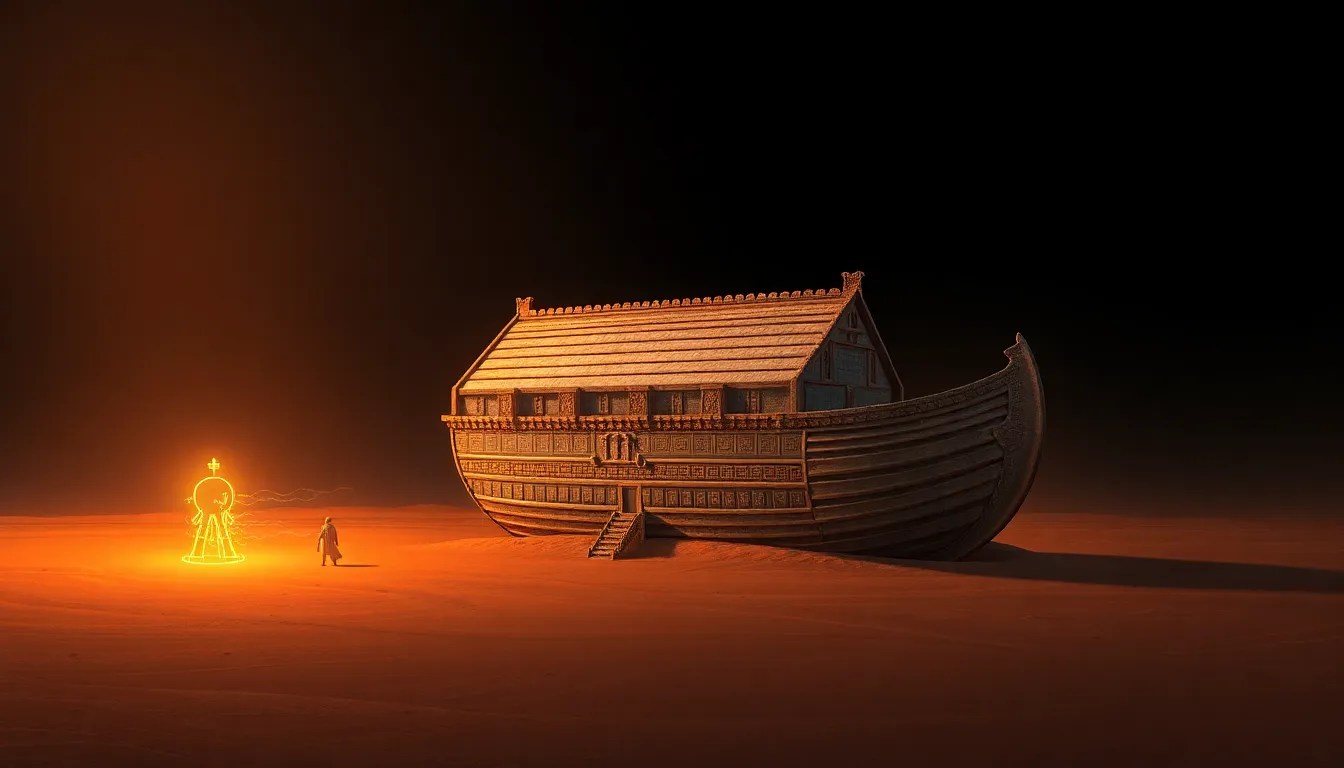Understanding the Symbolism of the Ark in Atrahasis
1. Introduction to Atrahasis and Its Significance
The epic of Atrahasis is one of the most significant texts in ancient Mesopotamian mythology, detailing the story of Atrahasis, a hero who survives a great flood sent by the gods. This narrative is not only a reflection of the ancient Mesopotamians’ understanding of the world but also a crucial part of their cultural and religious identity. The Atrahasis epic, dating back to the 18th century BCE, showcases the complexities of divine relationships and human existence.
Within the context of Mesopotamian mythology, the Atrahasis epic serves as a precursor to other flood narratives, including the more widely known story of Noah in the Hebrew Bible. The Ark, a central element in this tale, symbolizes not just survival but also the intricate ties between humanity and the divine in the face of catastrophic events.
2. The Ark as a Symbol of Preservation and Survival
The Ark in the Atrahasis epic is primarily a symbol of preservation and survival. It is constructed by Atrahasis under divine guidance to save his family and various species from the impending flood. This theme resonates with similar narratives found in other ancient cultures, highlighting a universal concern for survival in the wake of disaster.
- Comparison with Other Ancient Flood Myths:
- Noah’s Ark: Like Atrahasis, Noah is instructed to build an ark to save life from a divine flood.
- Epic of Gilgamesh: Utnapishtim, a character in this tale, also builds a vessel to survive a great deluge.
The thematic implications of survival during catastrophic events reflect humanity’s resilience and the hope for continuity in life, even in the face of divine wrath.
3. The Ark and Divine Intervention
The creation of the Ark is heavily influenced by the gods, particularly Enki, the god of wisdom and water. Enki’s role emphasizes the notion that the Ark is not merely a human creation but a vessel of divine will and protection. His guidance is crucial for Atrahasis, as it reflects the gods’ intervention in human affairs.
- Role of Enki:
- Enki’s warning to Atrahasis serves as a pivotal moment in the narrative, showcasing the importance of divine communication.
- The Ark acts as a means of maintaining the balance between divine intentions and human agency.
4. The Ark as a Microcosm of Creation
The Ark is also symbolic of a microcosm of creation, as it contains diverse life forms essential for the repopulation of the earth post-flood. This aspect of the Ark reflects the natural order and the interconnectedness of all life within the cosmos.
- Symbolism of Diversity:
- The inclusion of various animals represents the complexity and richness of life.
- It signifies the importance of every creature in maintaining ecological balance.
In many ways, the Ark serves as a representation of the world within a world, encapsulating themes of creation, preservation, and renewal.
5. The Ark and Human Agency
Atrahasis’s role in building the Ark highlights the tension between human initiative and divine command. While he receives instructions from the gods, his actions demonstrate human ingenuity and the capacity to respond to divine challenges.
- Themes of Free Will and Destiny:
- Atrahasis embodies the struggle for agency within the constraints of fate.
- The Ark stands as a testament to human creativity and resilience in the face of overwhelming odds.
6. The Ark in the Context of Mesopotamian Cosmology
Within Mesopotamian cosmology, the Ark embodies the relationship between chaos and order. The flood itself represents chaos, while the Ark is a bastion of order amidst destruction.
- Connections to Cosmological Beliefs:
- The Ark symbolizes the divine order that governs the universe.
- It reflects humanity’s attempts to navigate the complexities of existence in relation to the divine.
This understanding provides insights into how the ancient Mesopotamians viewed their place within the cosmos and the nature of their interactions with the divine.
7. The Legacy of the Ark in Later Traditions
The narrative of Atrahasis has significantly influenced subsequent myths and religious texts. The Ark’s symbolism has transcended cultures, appearing in various forms throughout history.
- Influence on Subsequent Myths:
- The story of Noah’s Ark in the Bible is a direct descendant of the Atrahasis narrative.
- Other cultures have similar flood myths, illustrating the universal themes of survival and divine intervention.
This legacy continues to impact literature and religious thought, serving as a powerful reminder of the enduring nature of these ancient stories.
8. Conclusion: The Enduring Symbolism of the Ark
In conclusion, the Ark in the Atrahasis epic serves as a multifaceted symbol that encapsulates themes of preservation, divine intervention, human agency, and cosmological balance. Its enduring legacy highlights the relevance of these ancient narratives in modern discussions of mythology and ethics.
The Ark stands as a symbol of hope and continuity, reminding us of the resilience of life and the importance of harmony between humanity and the divine.



